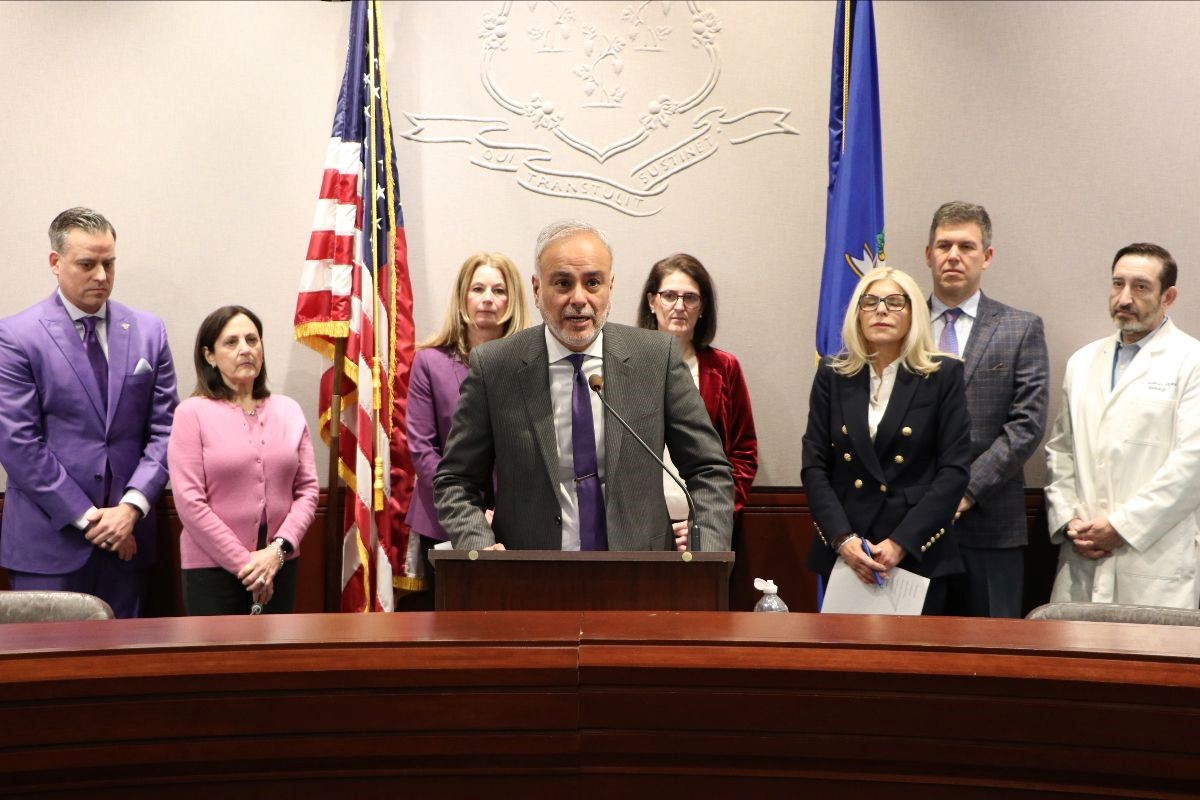AS PUBLIC HEALTH COMMITTEE VOTES TO SEND BILL TO SENATE FLOOR, PUBLIC HEALTH COMMITTEE RALLIES FOR PANCREATIC CANCER REFERRAL PROGRAM

On Monday, as the Public Health Committee met to advance Senate Bill 1191 to the Senate floor, members of the committee joined advocates and medical professionals to rally and recognize the importance of screening and treating pancreatic cancer.
If made law, SB1991 seeks to create a referral program for pancreatic cancer screening and treatments, targeting unserved or underserved populations where individuals may not have regular access to medical resources. Under the legislation as drafted if made law, the Department of Public Health will establish a pancreatic cancer screening and treatment referral program to promote screening, detection and treatment of pancreatic cancer among unserved and underserved populations; educate the public regarding pancreatic cancer and benefits of early detection; and counseling and referral services for treatment.
“This is about turning pain into purpose,” said State Senator Saud Anwar (D-South Windsor), Senate co-chair of the Public Health Committee. “Pancreatic cancer is the second-most deadly form of cancer in our state. These deaths are preventable. Unfortunately, pancreatic cancer is so pervasive that in some cases, once it’s found, it’s too late to treat it. People at later stages see it as a death sentence. But it is treatable if discovered early. This bill pulls our state’s resources together to better ensure scans occur in time to catch and treat this cancer. We have a responsibility to create a screening program that can better save lives in our communities.”
“We’ve had some real success in our state with our screening program, trying to save lives, and that’s what we’re trying to do here today,” said State Representative Cristin McCarthy Vahey (D-Fairfield), House chair of the Public Health Committee. “We need to get the message out that prevention is key, especially when it comes to pancreatic cancer. A lot of people don’t know what to do or what to look for, but we have people committed to making sure the word gets out around our state. In public health, we look in every way for everything we can do to prevent terrible diseases.”
State Senator Doug McCrory and State Representatives Sarah Keitt, Henry Genga, Antonio Felipe, Eleni Kavros-Degraw and Robin Comey, all on the Public Health Committee, joined the chairs.
“In 2024, about 67,000 new cases of pancreatic cancer were diagnosed in the United States and about 52,000 people died from pancreatic cancer,” said Dr. Brett Schipper of Hartford Healthcare, a pancreatic surgeon. “Survival increases depending on when it’s diagnosed. The key to survival is early detection. Hartford Healthcare is partnering with Project Purple, a not-for-profit based in Connecticut, to set up Connecticut’s largest pancreatic cancer screening program. It will identify high-risk individuals and screen them to hopefully catch cancer early. Legislation like this bill will catch cases early and save lives.”
Linda Kowalski, executive director of the Radiological Society of Connecticut and herself having lost her husband, Mark Gilhuly, to pancreatic cancer last year, led the rally in an effort to ensure residents of the state can have the best resources available to them for screenings, testing and treatments.
“I don’t want other families to go through what Mark and I did. That’s why this bill matters,” said Kowalski. “We have an opportunity to take meaningful action to not only add pancreatic screenings to the list of referral services recommended by the Department of Public Health, but also to develop new educational programs and systems for tracking and following up on pancreatic cancer screenings.”
Share this page: